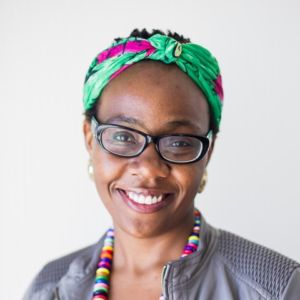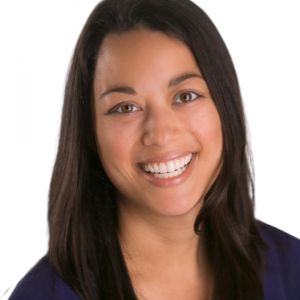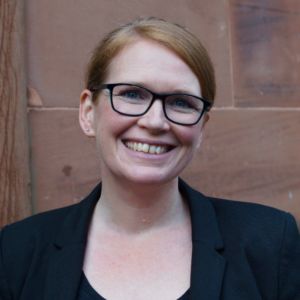In this Development Hub’s podcast episode, Dr. Nompilo Ndlovu and Dr. Kate Bird talk to Kim Kucinskas, Technical Director of Organizational Transformation at Humentum, and Dr. Ishbel McWha-Hermann, Lead Researcher at Project FAIR, about equity in compensation approaches for INGOs. They also discuss key insights from the Equitable Compensation Playbook— a practical resource to reducing pay inequality and increase transparency. Check out the excerpt from their discussion below.
Nompilo: [Tell us] how you came to work together?
Kim: Humentum works to realize the power of strategic operations. We work with organizational structures, people and culture, finance, risk and compliance. In the last two and a half years, the issues of equitable compensation have started to come to the forefront. We put together a working group of compensation professionals to try and figure out what the problem is. We realized that traditional ways of compensating are no longer fit for purpose.
There’s increased discussion and focus on equity, but we don’t know what equity means. We don’t have a common definition. We spent a year identifying archetypes of existing approaches. We came up with three and then [asked], how do we help people use these to make sense of what’s happening and what needs to change? That turned into the Equitable Compensation Playbook.
Ishbel: I’ve been studying fair pay and INGOs for more than 17 years. My PhD was to understand the impact of paying national and international staff differently. It’s not good for employees to feel that their systems are unfair. Many organizations were saying, we know this is a problem, we just don’t know what to do about it. [So], in 2016 I founded Project FAIR.
Nompilo: What links equitable compensation with localization?
Ishbel: In Project FAIR we talk about fairness and shift away from outdated models of aid. Historically we structure [pay] around the idea of this international expert who’s delivering something to a local novice. And this sets up a power dynamic. When we pay people in different ways, international and national, that reinforces that power dynamic. It’s about helping organizations to start questioning historical structures.
Kim: It’s a symptom of the broader system: how we recruit, how we staff, how we pay. It is also a signal of where we’re going. There’s a lot of discourse around localization. I’m seeing an increase in personal and institutional reflection about what that means practically. Compensation keeps coming up consistently because it’s based on value. When I get paid, it’s a signal of what my value and my worth are.
Ishbel: Localization is a high-level concept. What we’re doing in the compensation playbook is operationalizing it. It is saying, what does that mean for the organization?
Nompilo: Your recently published [the Equitable Compensation Playbook] aimed at INGOs. Could you [share] the key principles?
Ishbel: Collaborating with Humentum helped us to understand the issues from different perspectives. What we’ve done through the playbook is to signpost existing resources focusing on making strategic decisions about the current pay system. But we also look at what a future fair system would look like. Organizations won’t go to something radically different. Our resources aim to help them move through that process. Importantly, we have a set of principles and standards of fair INGO reward. It gives concrete examples of what working group members have been doing and of different types of pay structures.
Kim: We’re looking for intentionality and consistency. The working group focused on the workbook and we came up with three different approaches: location based, location agnostic and role based. And critically reflected on what’s working, what’s not, what needs to change. What’s interesting about this playbook is that it can be done individually for the compensation practitioner, or it can be applied at the organizational level. And we wanted to build an advocacy tool to use with senior leadership and to use it as a dialogue tool to have these conversations. What do we mean by fair? What do we mean by transparent? How are we going to consistently apply that across the organization? This provides a guide to have those difficult conversations.
Kate: Can you provide concrete examples of positive change?
Ishbel: Before 2018, we started creating case studies of organizations. [You will find them] on the Project Fair website. Many small organizations don’t have a standard pay structure in place. So, for them a structure of relative pay is a first point towards fairness. Then you go to the extreme where many organizations have shifted to a single salary system. They’ve said, we no longer have international and national contracts. We no longer pay on two different salary systems.
Kim: I’m seeing a decrease in the use of expats and an increase in local or more proximate hiring. There are instances where organizations can’t do away with expats entirely because of funding requirements. But there is a trend in recognizing that where there are international hires there needs to be an intentional and sustainable plan for that transition.
Kate: How does the issue of equitable compensation within INGOs fit within wider structural issues?
Ishbel: We promote using the national context as your benchmark. The idea is to bring INGO salaries in line with the local context. People who are doing similar roles in similar organizations, shouldn’t get more just because it’s an INGO.
Kim: There are structural challenges and barriers to real transformation. That’s the broader question around localization. The reality is that both INGOs and CSOs don’t have full autonomy over how they do their operations. And that includes how they compensate, recruit, and pay their staff. The answer is to level that playing field in the long term, to create an enabling environment for CSOs to hire enough staff to pay them properly. Part of that is busting myths about what it costs to do development work. We want [people] to get paid fairly and have the appropriate value for what they do.
Kate: You’ve talked about bringing salaries in line with local context, but you’ve also talked about role-based salaries.
Ishbel: Remote working is another challenge. The idea that you’ve got a consistent structure in place, but you’re applying the local market data from those different locations. If you’ve got a global scope, you’re going to be a higher grade and that will include different components. You must be thoughtful about how you’re using [that data].
Kim: Imagine that I’m a small organization and I have an HR generalist and I don’t have someone to pull this data and look at different country rates. How do you work within the constraints and the resources that you currently have? It’s a balance.
Kate: That’s where the [playbook] guidance is so valuable for smaller organizations, because it’s drawing on the expertise of larger organizations and a set of experts.
Nompilo: Is there any category of people that are falling outside of the confines of what your organizations can provide? For example, legally many African countries don’t recognize the LGBTQ community.
Ishbel: We try to have DEI conversations in parallel because we say pay is just the visible manifestation of inequality, but there’s much more. There are power challenges in any system. So, you’re right there will be people who are missed. The other challenge is making sure that there is not someone sitting in headquarters designing a system. It needs to be based on the local context. If we’re only focusing on that equity piece, we’re imposing an idea on other ways of thinking.
Ready to go from talk to action on equitable compensation? Get our free Equitable Compensation Playbook.




